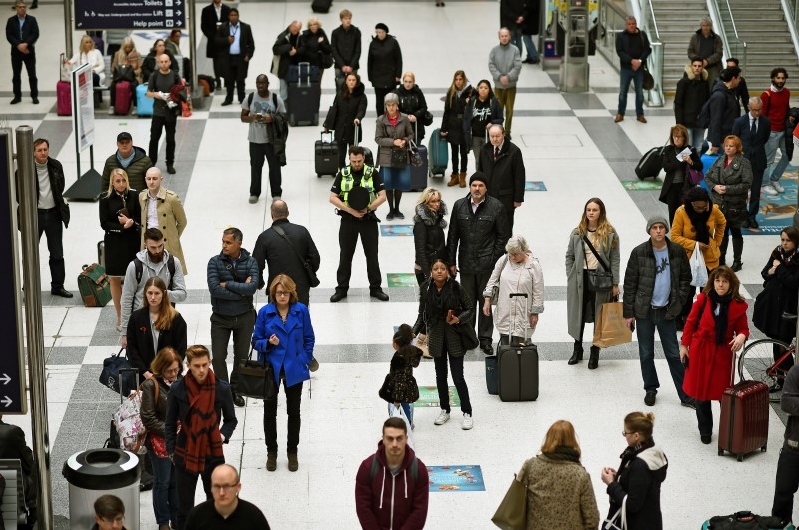
More than half of Britons want to leave the European Union as voter anxiety over the bloc's security was stoked by Islamist militant attacks on Paris that killed 130 people, according to an opinion poll published on Tuesday.
Prime Minister David Cameron is trying to win concessions from other leaders ahead of a referendum on British membership which he has promised by the end of 2017, though polls show British perceptions of the EU are volatile.
A survey of 2,000 people carried out by the ORB pollster for the Independent newspaper showed 52 percent of British voters wanted to leave while 48 percent wanted to stay.
Previous surveys by the pollster showed a majority of British voters supported remaining in the bloc, but support for staying has fallen by 7 percentage points since June.
"It is the first movement we have seen in six months in the data and clearly a backlash to the events in Paris," Johnny Heald, managing director of ORB International, said in an emailed response to questions about the poll.
"Many feel as if Europe has failed to protect their borders, the result of which has been bloodshed on the streets of Paris. We need to wait a few months to see whether this is a knee-jerk reaction or whether the tide is turning," he said.
A British divorce would shake the bloc to its core, ripping away its second largest economy and one of its top two military powers. Pro-Europeans warn an exit from the EU would hurt Britain's economy and could trigger the break-up of the United Kingdom by prompting another Scottish independence vote.
Opponents of membership say those fears are overblown and that Britain and London's financial center could prosper if it moved away from the stagnating economies of Western Europe and threw off what they view as onerous EU regulations and red tape.
The ORB poll showed support for leaving was highest among those aged over 55 and lowest among those aged 18-24. Scotland and Wales were the most pro-European parts of Britain while the south west of England was the most euroskeptic part.
Opinion polls before the attacks in Paris had shown British support for staying in the European Union was falling as concerns grew about the bloc's handling of a crisis provoked by an influx of migrants into Europe.
Earlier this month, British Prime Minister David Cameron launched his attempt to reform the 28-member bloc ahead of a referendum on whether Britain should remain an EU member.






